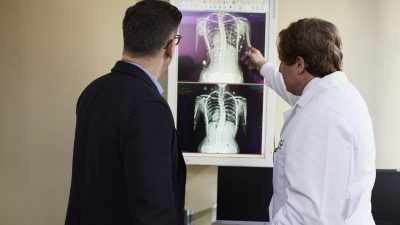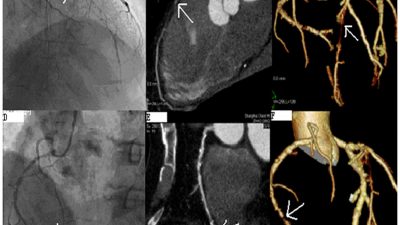Recent studies have shed light on the complex comorbidities of percutaneous coronary intervention in patients with cancer diagnoses. Bleeding “remains a concern” for PCI in cancer patients, but results are encouraging for newer generation drug-eluting stents. This Quality Matters news brief takes a look at the latest developments and some of the available resources and overviews of considerations for clinicians.
Welcome Data Show Two Sides of PCI in Patients with Cancer – Medscape Cardiology
Recently released research found no significant difference in the primary ischemic endpoint between PCI patients with and without cancer at one year. “We should not be reluctant to accept [cancer patients] for PCI in case of acute coronary syndromes or in case of stable CAD with uncontrollable angina,” says senior author Lorenz Räber, MD, PhD of Bern University Hospital, Switzerland to Medscape Cardiology. “This is the message.” Previous studies had shown inconsistent results, but were more limited in terms of size and the granularity of the data. A higher bleeding risk and risk of cardiac death was noted for patients with cancer, “particularly in the first year after cancer diagnosis,” reads the story. Read more »
The Cancer Patient Needing PCI Poses Conundrums for Care – TCTMD
TCTMD took a deeper dive into the latest research with a January 14 feature breaking down the lack of data on PCI outcomes for cancer patients. “Cancer patients have typically been excluded from PCI studies, particularly patients undergoing active cancer treatments or requiring surgery,” reads the article by TCTMD’s Shelley Wood. “As a result, the risk-benefit trade-offs with PCI and the need for protracted dual antiplatelet therapy (DAPT) are considerations that interventionalists grapple with on a daily basis.” Bonnie Ky, MD, of the Hospital of the University of Pennsylvania argued that all clinicians need more information on the burgeoning specialty of “cardio-oncology.” “Cardio-oncology is applicable to everyone,” said Ky to TCTMD. “There is a growing cancer population and there is a growing population of cancer survivors, and they are all coming into each and every one of our clinics.” Read more »

PCI in Patients with Cancer – Cardiac Interventions Today
Increased survival rates among cancer patients have increased the importance of “long-term cardiovascular side effects” of cancer, begin the authors of this comprehensive overview from February of 2019. The authors detail a number of considerations for clinicians, like the prevalence of coronary artery disease in cancer patients and cancer survivors, vascular access, pharmacology, imaging modalities, and unique challenges in this population. Read more »
PCI: Risks and Outcomes in Patients With Cancer – ACC
In May of 2019, the American College of Cardiology published this expert analysis on a case study of PCI in a cancer patient which provides another overview of outcomes in this population and unique considerations for clinicians. “In general, all patients with a current or prior history of cancer should be treated as a high-risk group while undergoing PCI,” warn the authors. “The overlap between cancer and cardiovascular disease is significant.” Read more »
ICYMI: Creating a Quality Culture in Cardiology
Discussion of navigating PCI in this particularly high-risk population calls to attention the crucial importance of establishing sophisticated continuous quality improvement and creating a quality culture for your organization’s cardiology team. Quality accreditation can help. Read more in our Quality Matters news brief from last month.












